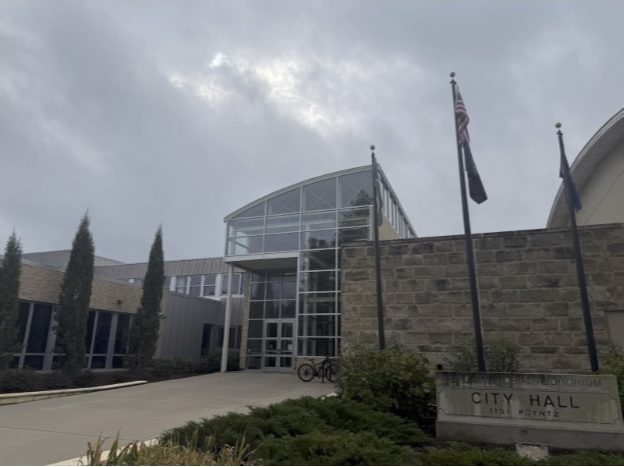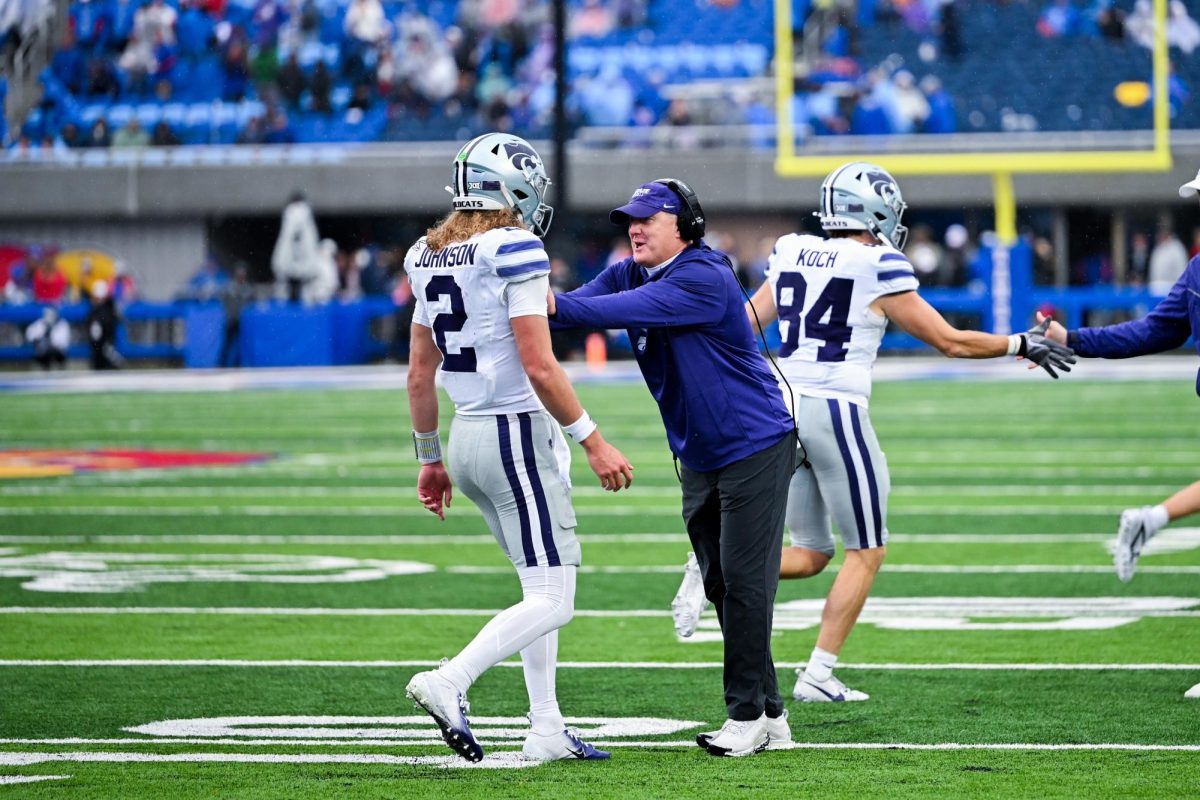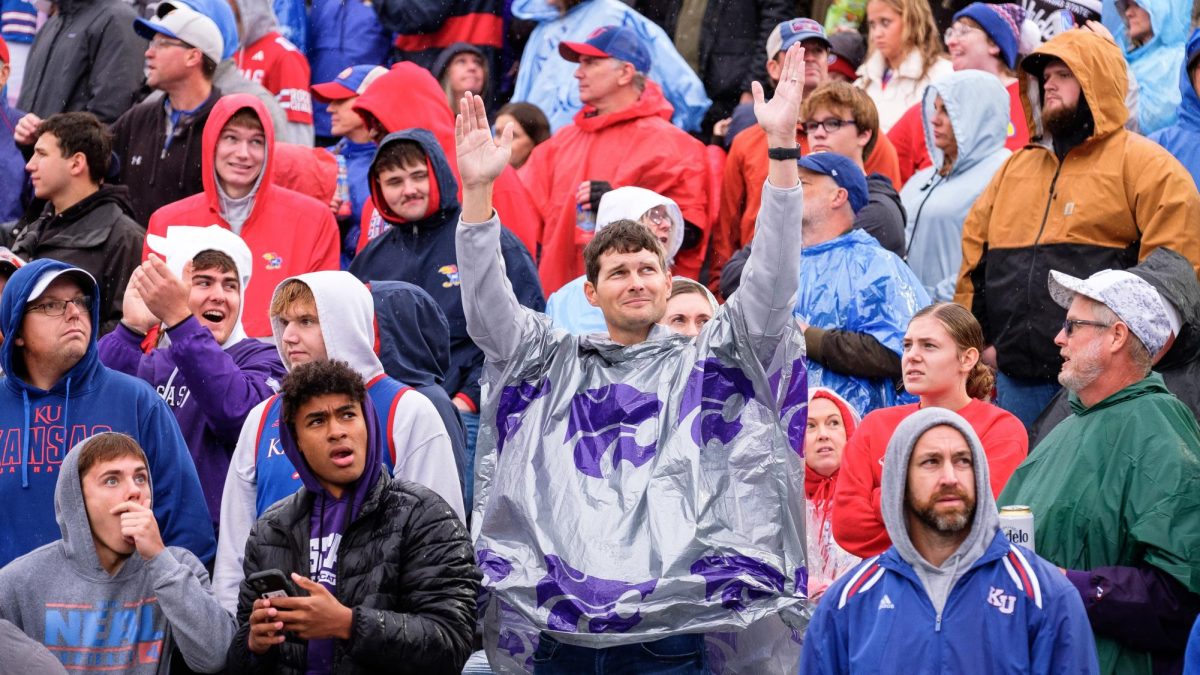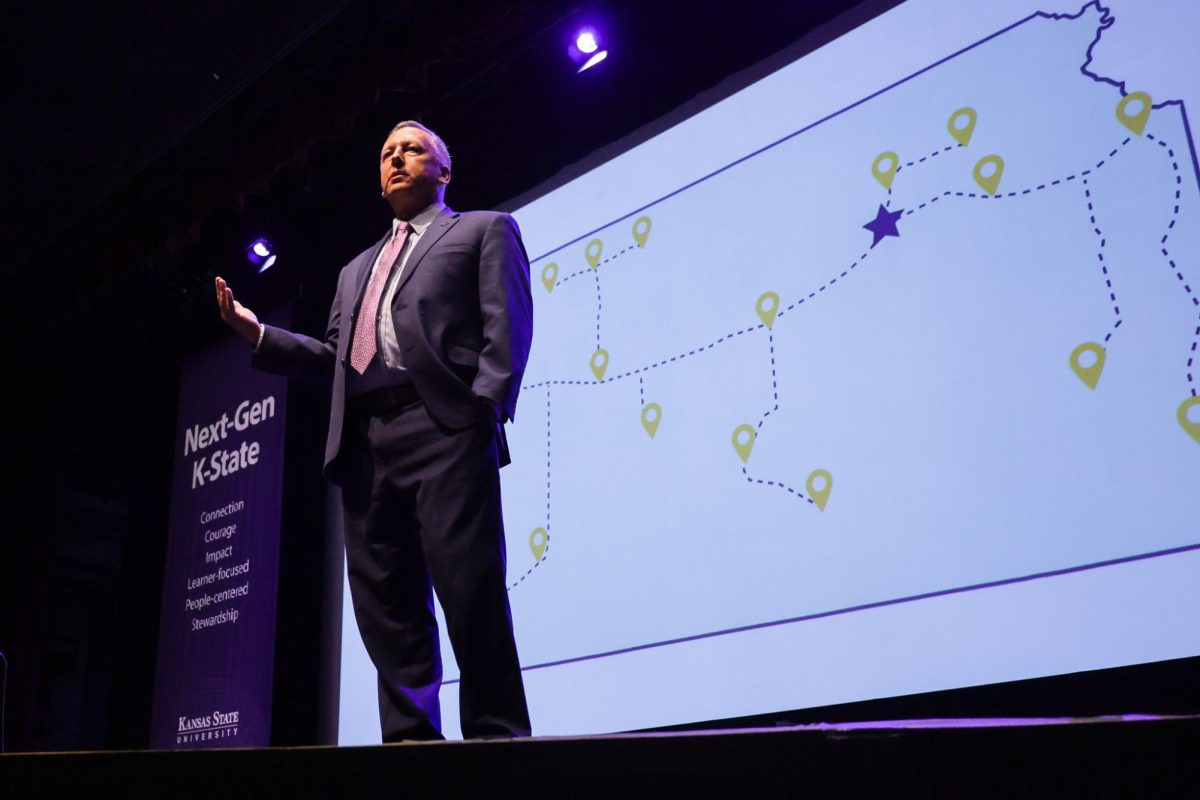President Linton addressed students, staff and alumni during the 2024 State of the University Address at 3 p.m. in McCain Auditorium, summarizing Kansas State’s efforts to transition from a land-grant university to a next-generation land-grant university.
During his speech, a woman stood up, interrupting Linton’s speech. The woman said the university housed nuclear weapons underneath Ford Hall, and that a proposed biomanufacturing facility would generate billions of dollars for big pharma, before announcing “I quit,” and being escorted out of the auditorium.
The identity and occupation of the protester is not known at the time of writing.
“Let me ask you something,” the protester said. “Whose idea was it to move a level four, dangerous facility … whose idea was it to move on it, to move a dangerous facility to the middle of the country?”
Linton did not respond to her comments.
“Answer the question, whose idea was it,” the protester said. “Would parents send their students here if they knew about the nuclear weapons housed underneath Ford Hall? Would they send their kids here?”
The mention of “nuclear weapons” may reference the Triga Mark II Nuclear Reactor Facility housed at K-State’s Manhattan campus. The reactor supports research and educational opportunities for mechanical nuclear engineering students. There is no mention of Ford Hall, a dorm hall or nuclear weapons on the program website.
The woman continued her protest as Linton’s presentation proceeded.
“The vicious biomanufacturing facility partnered with the Global Center for Grain and Food Innovation is going to cost Kansas citizens millions of people, and generate billions of dollars for big pharma,” she said. “F*** NBAF, f*** KSU.”
The National Bio and Agro-Defense Facility is a research facility completed in May 2022. As part of the U.S. Department of Agriculture, NBAF works to deliver scientific information and countermeasures to protect U.S. agriculture and combat threats to public health, according to the USDA.
NBAF is funded by a “unique shared investment involving the federal government, Kansas and the city of Manhattan,” according to a 2024 U.S. Department of Homeland Security press release.
The exchange lasted approximately a minute-and-a-half before the woman was removed from the auditorium by security.
The next-generation land-grant university plan was announced in September 2023 and includes upgrades to aging campus infrastructure, investing in research, increasing student enrollment and fostering productive relationships with K-State stakeholders, according to a Sept. 11 press release.
Linton listed community health and well-being, global food security and biosecurity, sustainability, and enabling technologies as four “grand global challenges of society” K-State could solve.
Dena Bunnell, associate director for research and international initiatives for the College of Agriculture, said K-State’s commitment to biosecurity extends beyond state borders.
“K-State has a very large international footprint in research and capacity building, and so that’s a big part of our mission, and the land-grant mission, and ensuring the well-being of communities in Kansas, but also around the world,” Bunnell said. “Biosecurity is a critical part of that as well because we have to keep that food system safe. … K-State is, and has been historically, at the forefront of ensuring that we are able to identify, track, mitigate and address diseases that affect plant, animal and zoonotic diseases in our food system.”
Linton said it is important to him to hear input from internal and external stakeholders.
“We can’t be a next-generation land-grant university unless we go into people’s backyards and listen to what’s important to them and what they need, and that’ll be the foundation of the work that we do as a land-grant tradition transitioning to a next-generation land-grant university,” Linton said. “As a president of a land-grant university, it is my job to listen to all sides. How do we meld together? [We take] what’s important for our external stakeholders, and what we believe is important at home and come up with the best strategy.”
Linton said community input inspired the creation of the Global Food and Grain Center, an interdisciplinary research center currently under construction between Call and Weber Hall. The building is set for completion in fall of 2026.
“The Global Food and Grain Center [will be] a mecca of being able to bring multiple disciplines together around animal science, food science, agronomy, grain science, milling science and baking science,” Linton said. “When you bring multiple disciplines together around the table to work on difficult and challenging problems. You can do it much more efficiently and effectively.”
Junior Jack O’Malley, student body vice president, said the university’s plan is pleasantly ambitious.
“The important part is that we have this plan, and we have to make sure not to lessen the goals,” O’Malley said. “Some of the goals are pretty steep and ambitious. I think that’s a good thing. I think as time goes on, there might be a pressure to try and lessen those goals, to make them easier to achieve. We shouldn’t do that, but I don’t think we are.”
In his closing remarks, Linton invited the audience to support his cause.
“My promise to you, our promise to you, is to be able to create the best land-grant university we possibly can that serves Kansans and serves the people that work at this institution,” Linton said. “I ask you, will you join me on that promise? How will you be a part of that promise, and will you help to move this university forward? Why not us? Why not K-State? Because we are the first land-grant university, if someone is to change it, to make it better, to make it more innovative, to make it more impactful, I ask you the question: Why not us?”






















































































































